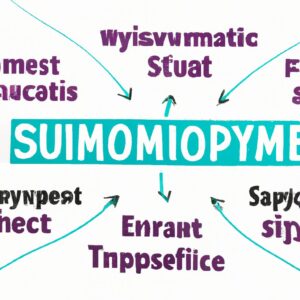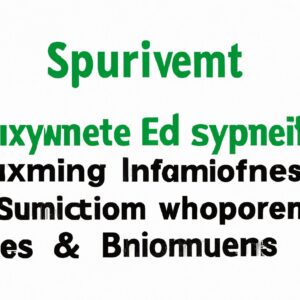Effective communication is the cornerstone of any successful relationship, whether personal or professional. However, sometimes it can be a challenge to convey our message clearly and concisely. This is where synonyms come in handy! Nurturing synonyms for effective communication can help us express ourselves with precision and clarity, allowing us to connect better with others. In this blog post, we will explore what synonyms are and how they can be used for effective communication. We’ll also delve into the benefits of nurturing your synonym vocabulary and provide practical tips on incorporating them into your everydaThe Importance of Nurturing Synonyms for Effective Communicationy language. So let’s dive in!
What are Synonyms for Effective Communication?

Synonyms are words that share similar meanings with other words. They provide us with alternative expressions to communicate our thoughts and ideas more effectively. For instance, instead of using the same word repeatedly in a sentence or paragraph, we can use synonyms to add variety and nuance to our language.
Using synonyms is essential for effective communication because it helps us avoid repetition, which can bore or confuse our audience. When we use the right synonym at the right time, we convey our message more accurately and impressively.
However, not all synonyms are created equal; some may have different connotations or shades of meaning than others. Therefore, it’s crucial to choose the appropriate synonym based on your intended tone and context.
For example, suppose you’re writing a formal email about an urgent matter. In that case, you might want to use “”expeditious”” instead of “”fast”” or “”quick,”” as it sounds more professional while still conveying urgency.
Nurturing your synonym vocabulary is vital for effective communication as it allows you to express yourself precisely without being repetitive or unclear.The Importance of Nurturing Synonyms for Effective Communication
How to Use Synonyms for Effective Communication

Using synonyms is a great way to diversify your vocabulary and communicate more effectively. However, it’s important to use them correctly in order to avoid confusion or misinterpretation.
Firstly, consider the context of your communication. Synonyms can have different connotations and meanings depending on the situation. It’s important to choose the most appropriate synonym for the specific context you are communicating in.
Another tip is to vary your word choice throughout your communication. Repeating the same words over and over again can become monotonous and reduce comprehension. Using synonyms allows you to convey similar ideas using different words, keeping your audience engaged.
Additionally, be aware of any cultural differences when selecting synonyms. Certain words may carry different meanings or connotations in other cultures or languages.
Don’t force yourself to use synonyms if they don’t feel natural or appropriate for what you’re trying to communicate. Effective communication should always prioritize clarity and understanding above all else.
By following these tips on how to use synonyms for effective communication, you’ll be able enhance your language skills while avoiding misunderstandings during conversations or written communications alike!
The Benefits of Nurturing Synonyms for Effective Communication

Nurturing synonyms for effective communication can provide numerous benefits that can improve your overall communication skills. One of the primary advantages of using synonyms is that it helps in enhancing clarity and precision in your message. By choosing the right words, you convey a much more specific meaning than using generic terms, allowing your audience to understand what you mean without confusion.
Another benefit of utilizing synonyms is to avoid repetition or monotony in language. Repeating the same word repeatedly during a conversation or presentation could lead to boredom and disinterest from your listeners. Therefore, incorporating different words with similar meanings keeps things fresh and engaging while still conveying the intended message.
Furthermore, when communicating with people from diverse backgrounds or cultures, using synonyms could help bridge any language gaps by providing multiple ways to express ideas or thoughts accurately. This approach promotes understanding and creates opportunities for individuals to connect on a deeper level.
In addition, nurturing synonyms assists in expanding one’s vocabulary which has its own perks such as better writing ability and improved critical thinking skills. With frequent practice of synonym usage over time, there will be an increase in confidence levels when communicating with others due to being able to articulate their messages more effectively.
Overall,nurturing synonyms for effective communication provides various rewards not only by improving communication but also by boosting other interpersonal skills like empathy and active listening which are essential aspects of good communication practice
Conclusion
Nurturing synonyms for effective communication is crucial in today’s fast-paced world. It not only enhances our vocabulary but also helps convey messages more clearly and efficiently. By using appropriate synonyms, we can avoid confusion or misinterpretation of words that may lead to misunderstandings.
Moreover, using a wide range of synonyms also adds depth and richness to our language skills, making us better communicators overall. It is essential to note that nurturing synonym usage takes time and practice, but it is worth the effort as it contributes significantly to effective communication.
Therefore, let us cultivate this skill by expanding our vocabulary daily. We can do so by reading books on varied topics or articles online from reputable sources such as journals and newspapers. Implementing these techniques will help make us better writers and speakers with excellent communication skills in both personal and professional settings.
“



